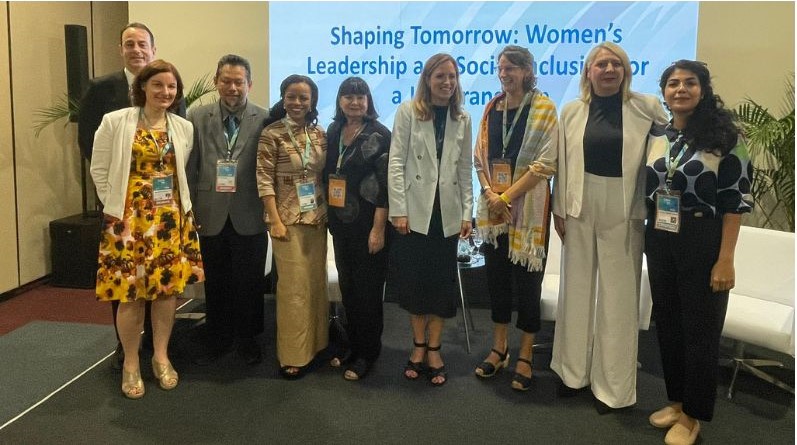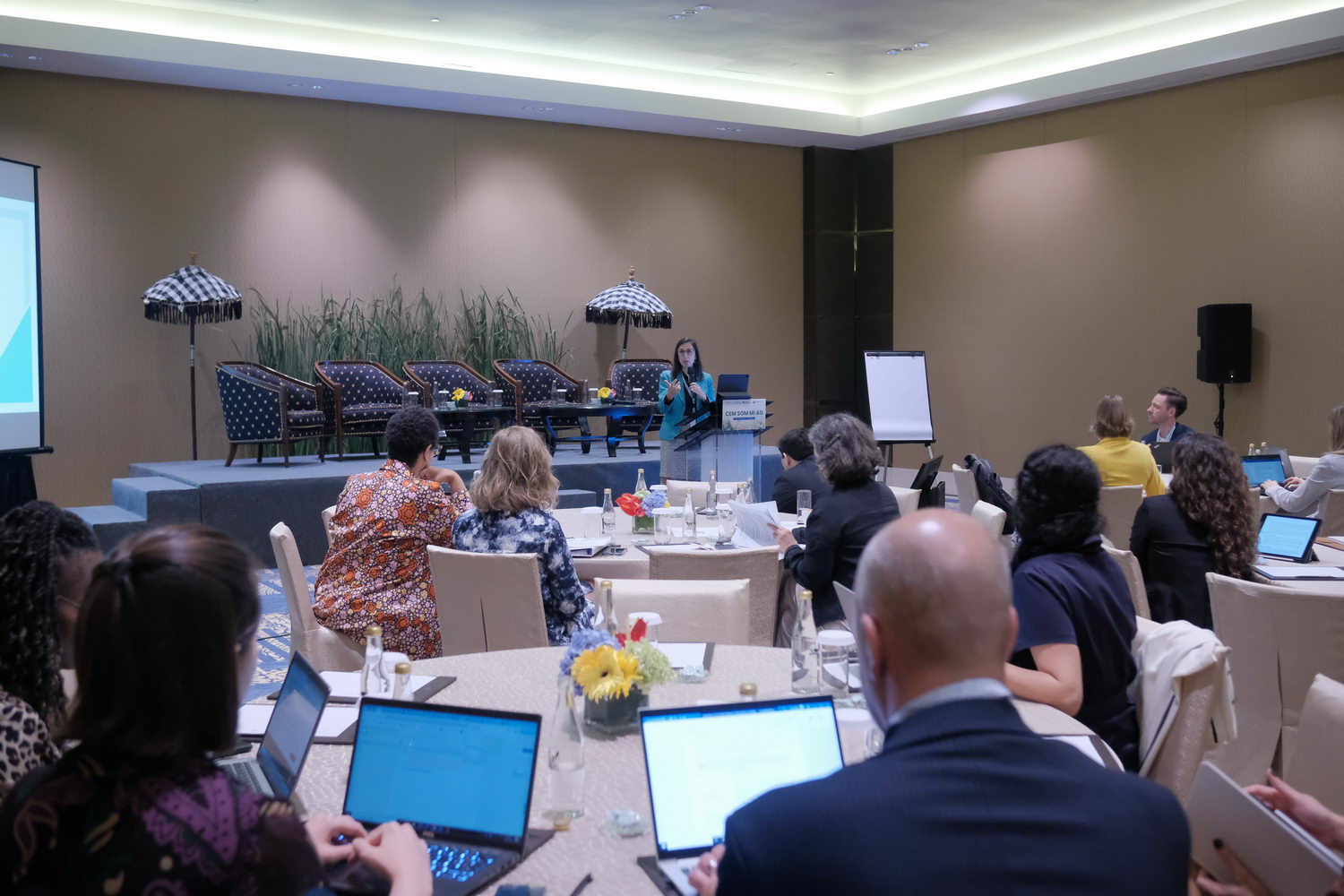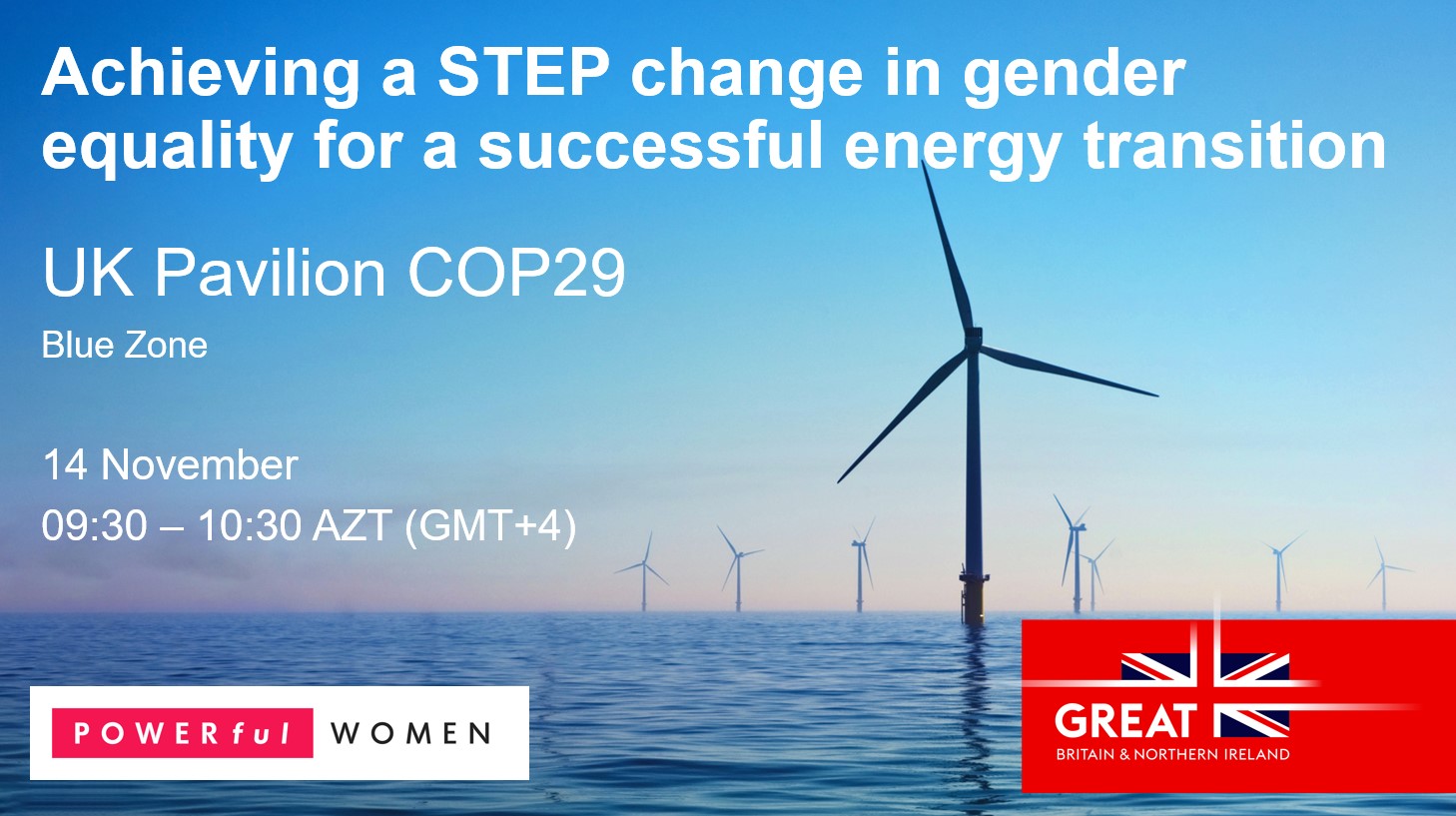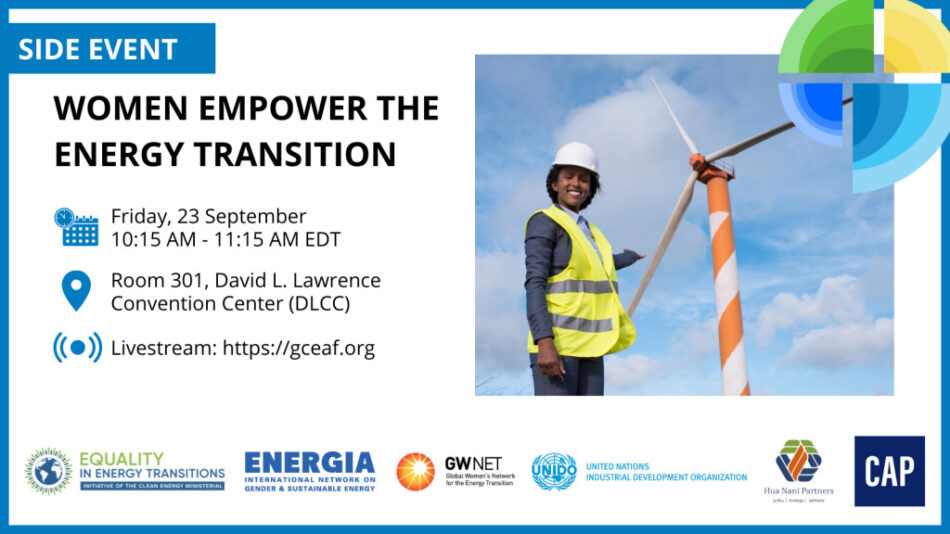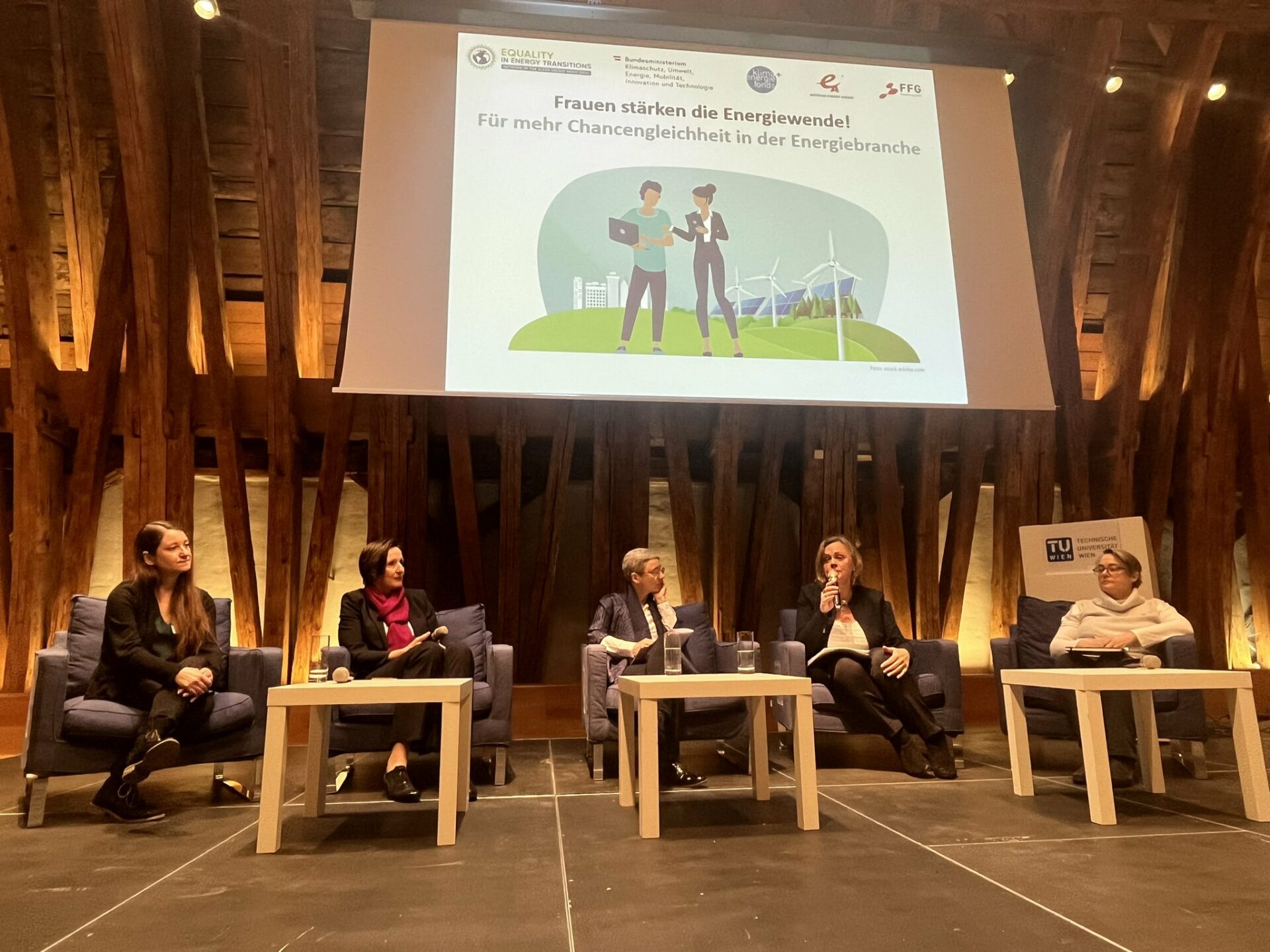
On March 2, 2023, the event “Women Strengthen the Energy Transition!” took place in Vienna with a total of over 150 participants as part of the Austrian accompanying activities of the Equality in Energy Transitions Initiative. This event was deliberately aimed at both women and men from the energy sector throughout Austria. The event presented new figures and data on the current state of equal opportunities in the energy sector and specifically increased the visibility of women’s careers in the energy sector in order to support the career opportunities of women in the energy and innovation sector. In this regard, the event was divided into three presentations, a subsequent panel discussion, and a themed café.
In her keynote Katharina Habersbrunner (Women Engage for a Common Future) spoke about various gender-related statistical data, which showed that Austria still needs to catch up in areas such as the female employment rate and the gender pay gap. Furthermore, the presentation provided insights into the existing structural, institutional and societal barriers for women in the economy. She concluded by providing an overview of various gender tools that can help promote the proportion of women in business and leadership roles. These include a variety of possible measures, from gender budgeting and gender monitoring to anti-discrimination and anti-sexism training, customized training and the use of gender-inclusive language, as well as increasing the visibility and representation of women.
Julia Himmelsbach and Lisa Diamond from the Austrian Institute of Technology then presented new figures and data on the current state of gender equality in the Austrian energy sector. According to their study, the visible share of women in the entire energy sector in Austria is currently around 24 percent. A significant correlation was found with the size of the company: The larger a company is, the lower the proportion of female employees. Managerial jobs are still mostly in the hands of men. In a company survey conducted, clearly different gender distributions were found depending on the job performed. Women hold fewer management positions and therefore receive lower salaries. In addition, the values communicated and practiced in the energy sector regarding equal opportunities were investigated. It was found that gender-sensitive language is already widespread, but still one third of the respondents reported cases of discrimination. Finally, various exemplary measures to promote equal opportunities in the areas of junior staff development and recruitment, organizational culture, work-life balance and existing equipment were presented.
Afterwards, the Equality in Energy Transitions Initiative was presented to the participants by Kerstin Schilcher from the Austrian Energy Agency. The Equality in Energy Transitions initiative aims to connect women in energy professions and promote their information exchange and knowledge transfer. Various measures aim to increase the visibility of women in energy professions, recognize women in leadership roles, and highlight role models for young women to inspire them to pursue similar professions. These include, for example, face-to-face and digital networking opportunities and an ambassadors program.
In a subsequent panel discussion, five women from different areas of the energy sector discussed what companies can do to promote the careers of women in the sector. The panelists talked about the many benefits of having a higher proportion of women in business, such as increased business performance, greater corporate well-being and increased innovation performance. They also discussed measures on how to achieve this and challenges that come along with it. The important role of women’s networks was also addressed during the discussion. It was emphasized that the energy transition and the transformation processes associated with it, or the entire European Green Deal, cannot be imagined or implemented without a gender and diversity dimension. This is a joint project in which all citizens are needed, not only to participate in the process, but also to take part in decision-making. Furthermore, it was discussed that women are often seen as a homogeneous group in these social discussions, which does not reflect the reality of diverse experiences and thus underlines the relevance of an intersectional approach.
After the panel discussion, attendees were invited to share food and drinks and network with each other at a themed café focusing on four topics: Discrimination in the workplace is common; career and promotion opportunities for women in the energy sector; the more technical, the fewer women; and empowerment of women in companies.
For more information and the German event report please click here.

